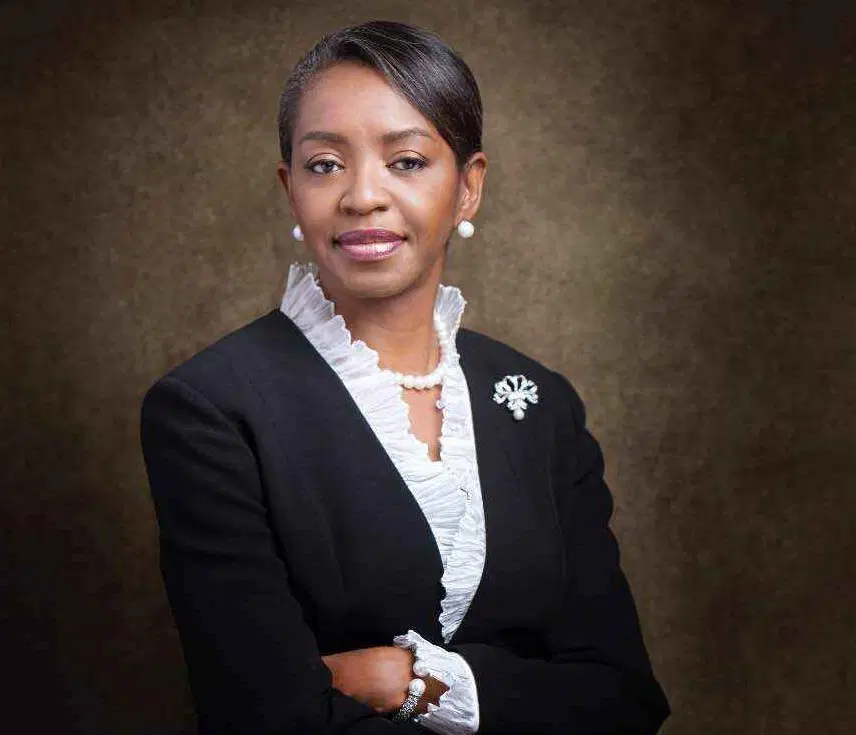History was made on Tuesday, October 7, 2025, when May Agbamuche-Mbu, a distinguished lawyer and long-serving electoral commissioner, became the first female to lead Nigeria’s Independent National Electoral Commission (INEC).
The handover took place at the INEC headquarters in Abuja during a meeting with Resident Electoral Commissioners (RECs). Her appointment marks a milestone in Nigeria’s electoral history, symbolizing both gender progress and professional integrity at the heart of the nation’s democracy.
A Trailblazer in Law and Governance
Born in Kano but hailing from Delta State, May Agbamuche-Mbu brings more than three decades of legal and administrative experience to the role. A graduate of the University of Ife (now Obafemi Awolowo University), she earned her Bachelor of Laws (LLB) in 1984 and was called to the Nigerian Bar in 1985. She later qualified as a Solicitor of the Supreme Court of England and Wales after studying at the College of Law, London.
Agbamuche-Mbu also holds a Master’s degree in Commercial and Corporate Law from Queen Mary University of London and postgraduate certifications in International Business Law and Dispute Resolution.
Before joining INEC, she was Managing Partner at Norfolk Partners, a Lagos-based law firm, and served as Sole Solicitor to the Presidential Projects Assessment Committee (2010–2011). In 2016, she joined the Commission as a National Commissioner, where she contributed to key reforms in legal frameworks, electoral policy, and stakeholder engagement.
Read Also: May Agbamuche-Mbu: Key insight into INEC’s new acting chair
A certified arbitrator and former Secretary of the Chartered Institute of Arbitrators (Nigeria), Agbamuche-Mbu is also a respected legal writer, having authored over 120 editions of the “Legal Eagle” column in THISDAY Lawyer between 2014 and 2016.
Described by colleagues as calm, disciplined, and reform-minded, she is known for her quiet leadership style and unwavering commitment to strengthening electoral institutions.
Her assumption of office comes at a crucial time as INEC continues to implement reforms, build voter trust, and prepare for future elections.
INEC Through the Years: The Leaders Who Shaped Nigeria’s Elections
Since Nigeria’s return to democracy in 1999, INEC has been pivotal in shaping the country’s democratic journey. Agbamuche-Mbu joins a line of distinguished chairmen , academics, and reformers — who each left their mark on the nation’s electoral evolution.
Justice Ephraim Akpata (1998–2000) oversaw the 1999 elections that ushered in civilian rule. A respected jurist, his tenure laid the foundation for Nigeria’s modern electoral system before his death in 2000.
Dr. Abel Guobadia (2000–2005) brought stability and a technocratic approach, modernising voter registration and supervising the 2003 elections.
Professor Maurice Iwu (2005–2010) introduced biometric concepts and the electronic voter register, though the 2007 elections under his watch drew criticism for widespread irregularities.
Professor Attahiru Jega (2010–2015) is widely credited with restoring credibility to Nigeria’s elections. His introduction of the Permanent Voter Card (PVC) and Smart Card Reader helped deliver the 2015 election, which saw the first peaceful transfer of power between parties.
Professor Mahmood Yakubu (2015–2025) deepened electoral technology with the BVAS and IReV platforms, improving transparency. Despite logistical challenges, Yakubu became the first INEC chairman to serve two terms, guiding the 2019 and 2023 elections.
A New Chapter for Nigeria’s Democracy
With her appointment, May Agbamuche-Mbu stands at a defining moment in Nigeria’s democratic history, the convergence of law, gender equality, and institutional reform.
As the first woman to head INEC, her leadership represents more than a personal achievement; it is a testament to the evolving inclusiveness of Nigeria’s political system. Her challenge now lies in consolidating the gains of her predecessors, reinforcing transparency, and restoring faith in the power of the people’s vote.
In a nation where the credibility of elections often defines public confidence in governance, Agbamuche-Mbu’s tenure will test not just her legal acumen but her courage to protect democracy itself.



